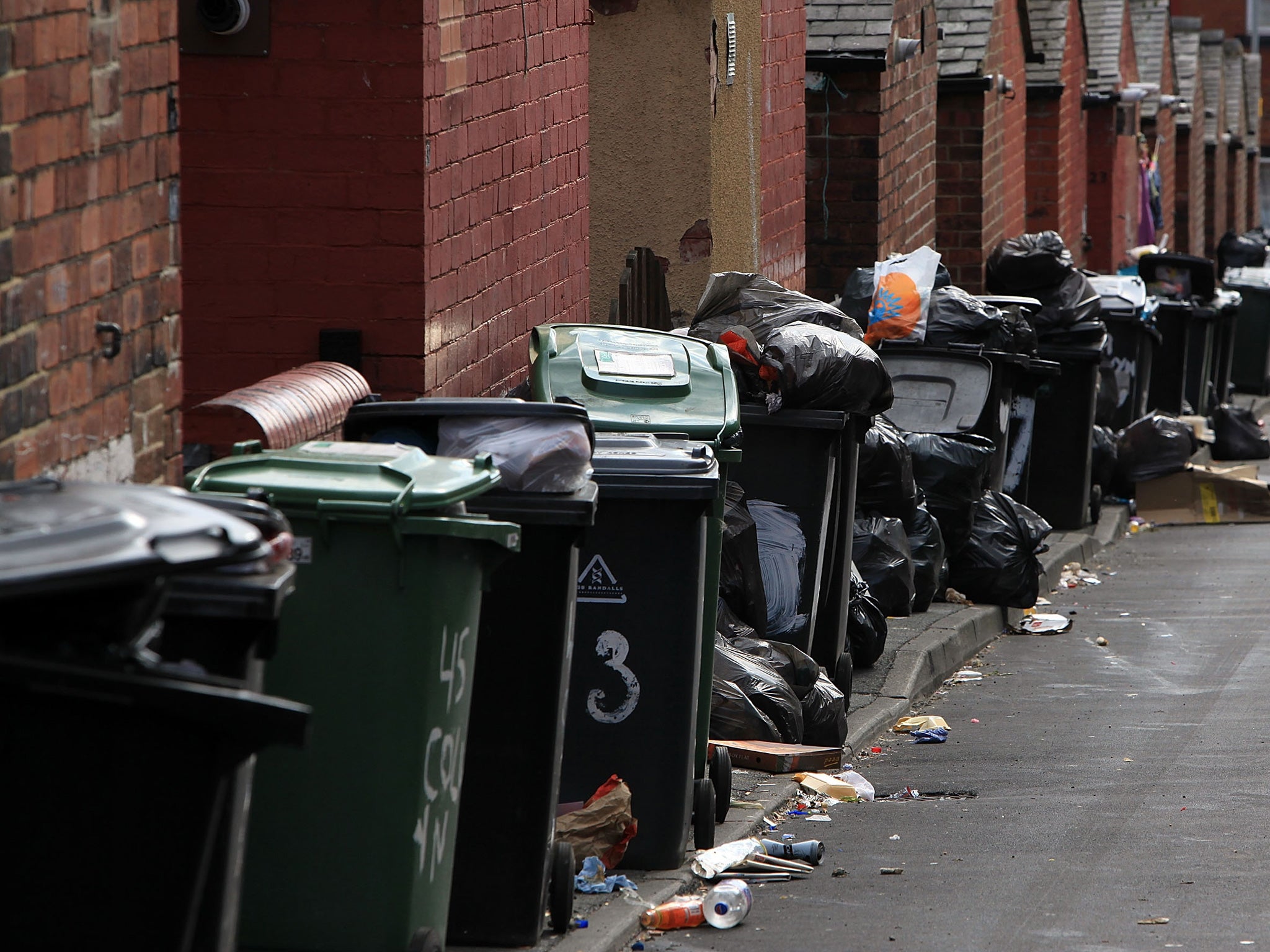Battle of the bins: Defra stats show fortnightly refuse collections INCREASES recycling

Your support helps us to tell the story
From reproductive rights to climate change to Big Tech, The Independent is on the ground when the story is developing. Whether it's investigating the financials of Elon Musk's pro-Trump PAC or producing our latest documentary, 'The A Word', which shines a light on the American women fighting for reproductive rights, we know how important it is to parse out the facts from the messaging.
At such a critical moment in US history, we need reporters on the ground. Your donation allows us to keep sending journalists to speak to both sides of the story.
The Independent is trusted by Americans across the entire political spectrum. And unlike many other quality news outlets, we choose not to lock Americans out of our reporting and analysis with paywalls. We believe quality journalism should be available to everyone, paid for by those who can afford it.
Your support makes all the difference.The battle of the bins has broken out again after analysis of Government figures showed that collecting refuse fortnightly - a policy considered by the Communities Secretary, Eric Pickles, to be rubbish – increases recycling.
Analysis of official figures from the Department of the Environment, Food and Rural Affairs (Defra) showed that in the past two years nine of the 10 councils with the biggest improvements in recycling pick up non-recyclable waste fortnightly.
Responding to the figures, councils said that residents had coped easily with binmen visiting every two weeks - while Friends of the Earth likened those demanding weekly visits to climate-change deniers.
However the Department for Communities and Local Government, whose Secretary of State, Mr Pickles, has described weekly collections as a “basic right”, stuck to its policy. Reducing the frequency of collections, it said, was “lazy and unnecessary”.
Mr Pickles has threatened to “look closely” at the funding of local authorities which refuse restore weekly rounds.
At present around half of councils collect ordinary refuse fortnightly, with many of those collecting recycling and or food waste in the alternate weeks.
Some households are vigorously opposed to fortnightly collections, deeming them to be unhygienic and inconvenient and after coming to power two years ago, Mr Pickles intended to force all councils in England to restore them. However he scrapped the idea last June after a review found it would be too expensive.
Instead, in November he set up a £250m fund to incentivise the councils to fall into line, saying: “Weekly bin collections are one of the most visible frontline services and there is no plausible reason why councils shouldn't deliver them to hard-working residents.”
He added. “We have demolished the Labour myth that fortnightly bin collections were necessary to save money or increase recycling.”
The latest figures, for England in 2010/11 and 2011/12, show that the most improved council, Runnymede Borough Council in Surrey, almost doubled its recycling of total waste, from 29 per cent to 47 per cent, after moving to fortnightly collections.
Cheltenham Borough Council similarly boosted its recycling by a third from under 35 per cent to 46 per cent. Roger Whyborn, its cabinet member for sustainability, said: ”The increase in recycling is undoubtedly because from April 2011… introducing weekly food waste, combined with only collecting residual waste fortnightly, caused a major step change in people's recycling habits.“
An analysis of figures by the government's waste quango, Wrap, two years ago estimated that reintroducing weekly collections across all 170 local authorities in England would lower recycling and cost taxpayers £530m.
Responding to the latest figures, Julian Kirby, waste and resources campaigner at Friends of the Earth, said: “It’s obvious that fortnightly collections boost recycling and save councils money. The sad thing about this is that it’s like having to argue about people causing climate change.”
He called for fortnightly collections of non-recyclable rubbish and weekly collections of food waste.
Rejecting that, the Communities Minister, Brandon Lewis, said: “Research shows that residents overwhelmingly prefer a regular and frequent rubbish collection, but under the previous administration the numbers of weekly services across the country halved while council tax doubled.
“Cutting the frequency of collections is a lazy and unnecessary move. It is possible to increase recycling and still have comprehensive weekly service, through better procurement, more joint working and using incentive schemes.”
Labour’s show environment minister Tom Harris said that as well as fighting Defra, Mr Pickles was undermining the Conservatives’ localism agenda. “Ultimately this is a decision for local authorities rather than central government,” he said.
Defra declined to comment.
Join our commenting forum
Join thought-provoking conversations, follow other Independent readers and see their replies
0Comments